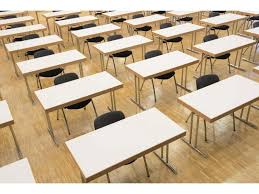Private candidates are students who study independently, are home schooled or enrol with a distance learning provider, to be prepared for GCSE, AS and A Level examination. The numbers of private candidates have grown significantly in recent years. Private Candidates circumvent the school educational system. They choose to do so for many reasons which may include bullying, health issues, exclusions, mental health.

Private candidates sit their GCSE, AS or A Level exams privately and must register with a private candidate examination centre in England approved by AQA, Edexcel Pearson, OCR, WJEC as well as Cambridge Assessment International
Most Private candidates register with examination centres near home if possible, for convenience and accessibility. Schools which have spare capacity during the exam series, will allow private candidates to sit their examinations at their centre, but the schools’ primary responsibility remains to its cohort.
In March 2020, the government cancelled June examinations. The alternative? Students will receive a predicted grade. OFQUAL set out a system by which this will be done for pupils in the UK studying towards GCSE, AS and A Levels in schools. Teachers will decide the predicted grades for their pupils and together with and Heads of Centres agree on the rank according to strict guidelines laid down by OFQUAL. The process is fairly straightforward, as students’ records for written assessments, mock examinations and attainment data going back several years, is readily available within the school and easily accessible to teachers.
On the other hand, for a private candidate, no such data or evidence exists within the private examination centre. There is precious little for the Head of Centre to draw on. Tutors may provide examples of work completed by the private candidate, but the Head of Centre will not be able to take that at face value.
The ‘Evidence and Data’ requested, include conditions which many private candidates cannot fulfill:
These are:
- A private candidate who has entered for their examination must find out whether the Head of Centre will, based on the evidence they have, give them a predicted grade.
- The Head of Centre must feel confident that they can do so with integrity based on the evidence provided.
- If the Head of Centre is unable to accept a private candidate’s entry, a transfer to another Centre may be possible, if that Centre has stronger evidence on the candidate. Or, if that Head of Centre is willing to arrange assessments to access academic ability of the private candidate,
- If all attempts fail, the only option for the private candidates is to sit the examinations in autumn 2020 or summer 2021.
Private candidates who studied with a distance learning provider should have a means of sourcing such evidence. However, if a private candidate is independently taught, or had a private tutor, the situation is much more challenging. A private examination centre will not have had the relationship with a private candidate that teachers naturally have with their students in school and the Head of Centre is unfairly tasked to validate data from many different sources. Many Heads of Centre do not wish to put their career on the line for pupils not connected to their school.
It is clear that Heads of Centre are not prepared to validate work and accept responsibility to give a private candidate a predicted grade and add them to the rank of the cohort in their school, when little or nothing is known about their academic ability. They are accepting huge responsibility,and not prepared to take the risk. The grades given to private candidates will have to be verified by exam inspectors at a later date.
Autumn 2020 examinations have been promised by OFQUAL for private candidates who are unable to get a predicted grade, also for students in school who are unhappy with their predicted grade. However, this requires the agreement of the exam boards, and has not yet been confirmed.
The majority of private candidates are beginning to doubt whether they will get a predicted grade in August 2020 to allow them to proceed to the next stage of their education.
Following OFQUAL’s consultations with schools, parents and students, a workable solution has not been agreed to allow all private candidates to be allocated predicted grades in August 2020. Without that grade, most will not get university places or employment. Autumn examinations are not a certainty, even if they were, it is unclear whether all subjects would be offered?
Will private candidates have to consider a gap year? For those who have just come off a gap year – what now? Their future, education and employment plans hang in the balance.
Understandably, private candidates feel that better arrangements for predicted grade have been made for students who fall within the school system, that is clear. In contrast private candidates acknowledge, it is not a level playing field for them.
Feelings are running high among those private candidates who are being refused grades by Heads of Centre. They feel they are being treated unfairly because they have taken a different route for their education. They have worked hard and, in many cases, gone to great expense to prepare for their GCSE, AS or A Level examinations. They need a grade in August 2020 just as much as pupils in school.
The cancellation of examinations in 2020 throughout the UK due to the COVID-19 pandemic has created a crisis for private candidates. Many are in a state of panic. The dilemma is that they have spent months or years preparing for their GCSE, AS or A Level examination, all of which are now in jeopardy.
Private candidates are venting their anger and dissatisfaction on twitter, Instagram and other social media platforms, joined by parents and tutors. Jointly they view this situation as an injustice. Twitter is busy with complaints and comments. Private candidates are entreating the government and Ofqual to give them a fairer deal.
A petition has been set up asking the government to re-think its policy in relation to private candidates.
It is expected that private candidates in the BAME community will be more adversely affected by this problem.
How will this situation be resolved? Perhaps universities will devise a plan and save the day. Employers may be sympathetic and understanding and give some private candidates a lifeline through in-house testing? The months ahead will be interesting.
Written by: May Fields







